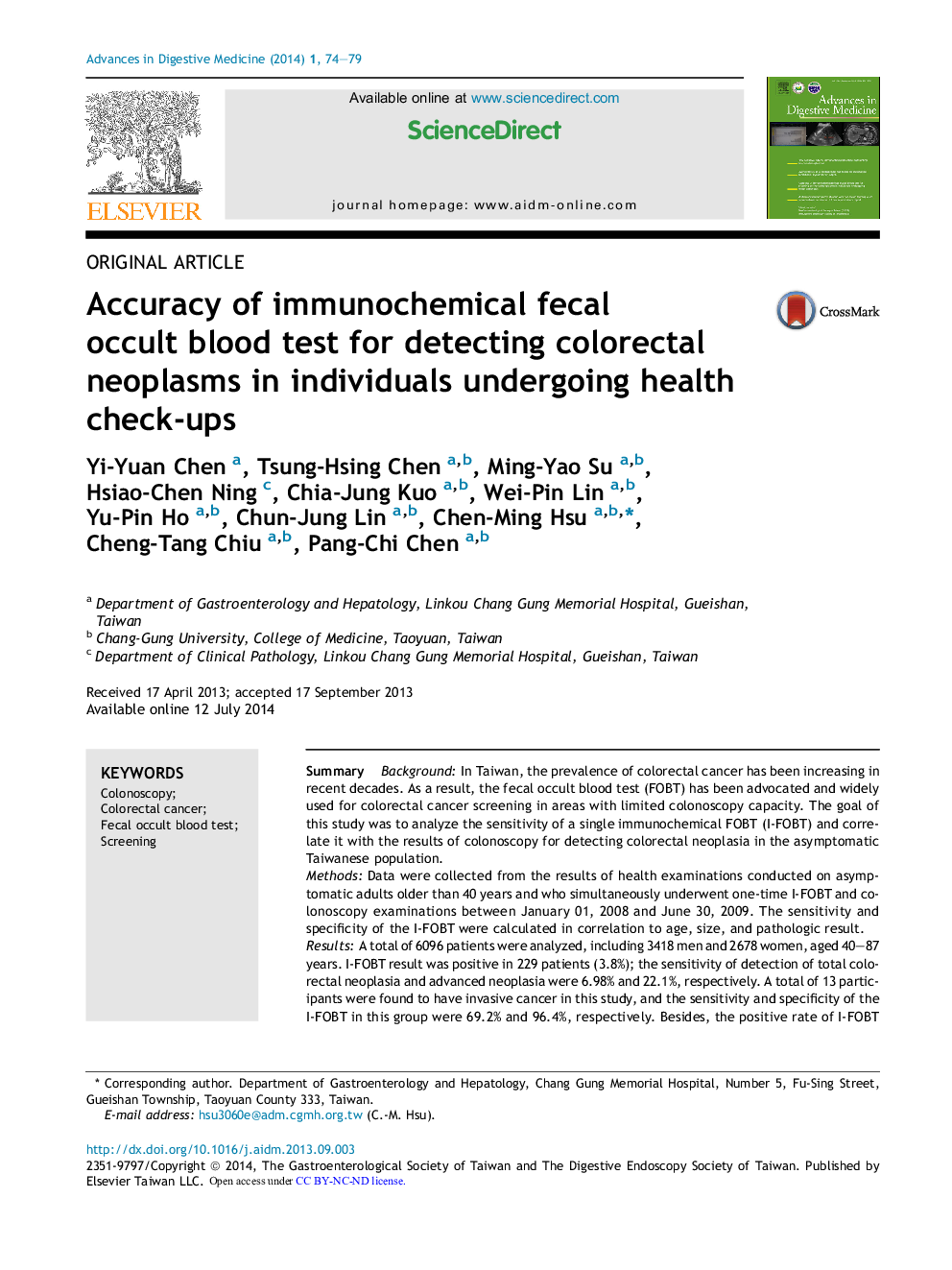| Article ID | Journal | Published Year | Pages | File Type |
|---|---|---|---|---|
| 3278607 | Advances in Digestive Medicine | 2014 | 6 Pages |
SummaryBackgroundIn Taiwan, the prevalence of colorectal cancer has been increasing in recent decades. As a result, the fecal occult blood test (FOBT) has been advocated and widely used for colorectal cancer screening in areas with limited colonoscopy capacity. The goal of this study was to analyze the sensitivity of a single immunochemical FOBT (I-FOBT) and correlate it with the results of colonoscopy for detecting colorectal neoplasia in the asymptomatic Taiwanese population.MethodsData were collected from the results of health examinations conducted on asymptomatic adults older than 40 years and who simultaneously underwent one-time I-FOBT and colonoscopy examinations between January 01, 2008 and June 30, 2009. The sensitivity and specificity of the I-FOBT were calculated in correlation to age, size, and pathologic result.ResultsA total of 6096 patients were analyzed, including 3418 men and 2678 women, aged 40–87 years. I-FOBT result was positive in 229 patients (3.8%); the sensitivity of detection of total colorectal neoplasia and advanced neoplasia were 6.98% and 22.1%, respectively. A total of 13 participants were found to have invasive cancer in this study, and the sensitivity and specificity of the I-FOBT in this group were 69.2% and 96.4%, respectively. Besides, the positive rate of I-FOBT increased with age, with 40–49 years (2.89%), 50–75 years (4.21%), and >75 years (5.68%). In addition, the sensitivity for detecting total neoplasia and advanced neoplasia was similar in patients ≥50 years and ≥40 years of age.ConclusionThe I-FOBT has better sensitivity for detecting invasive cancer and advanced neoplasia than for detecting nonadvanced neoplasia. Repeated I-FOBT examinations with good adherence to the screening program may improve the detection rate and sensitivity of the I-FOBT.
